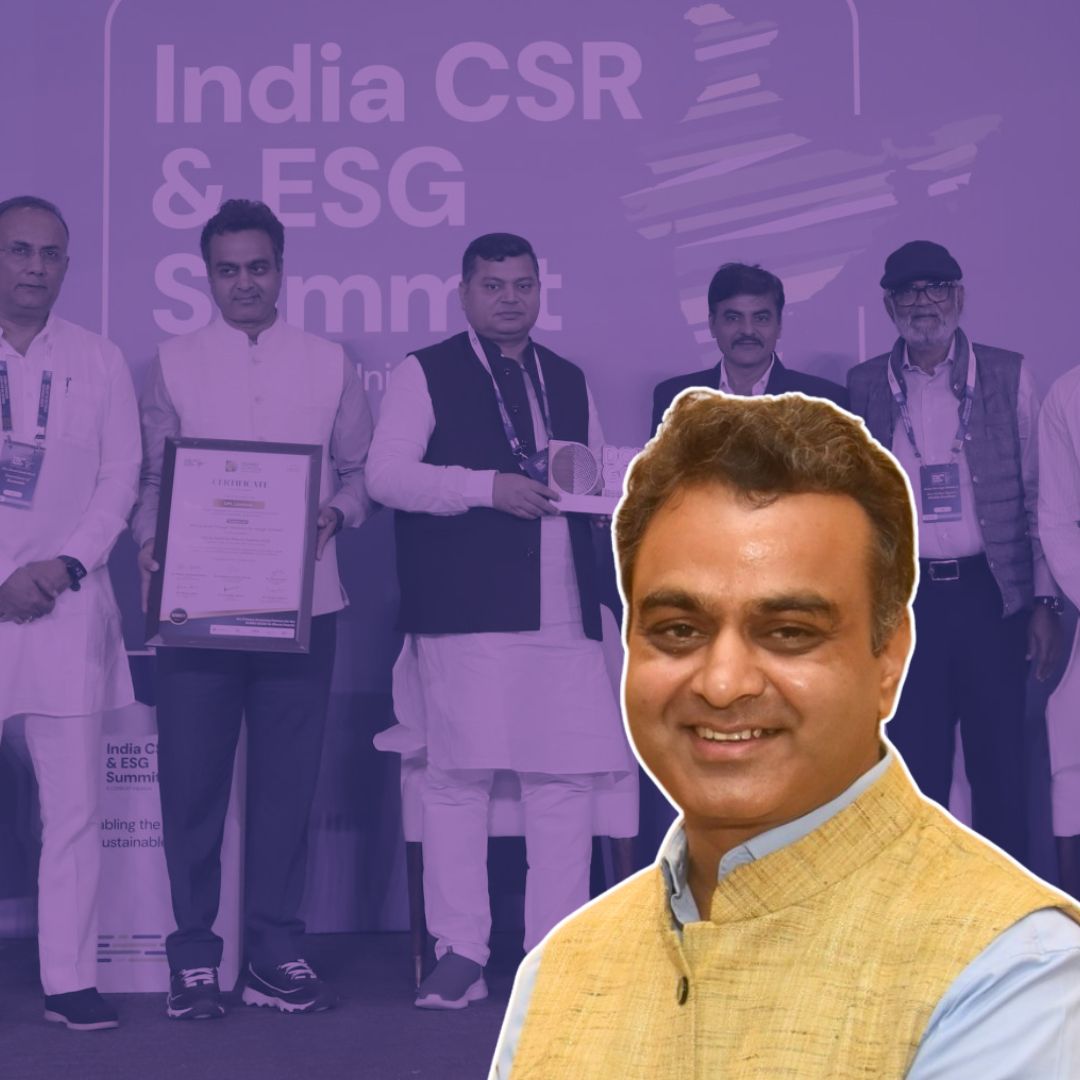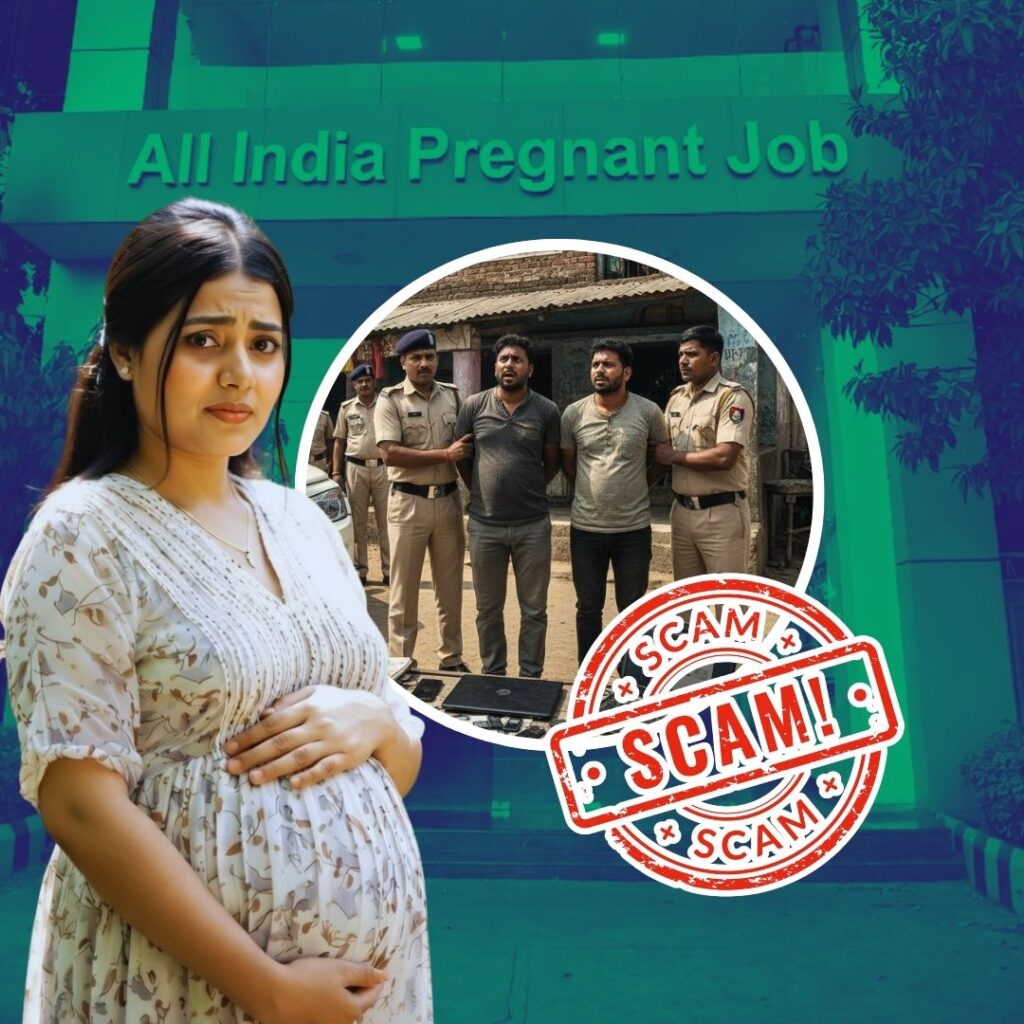Rishi Pathania’s journey in the social impact sector is not merely professional it’s a personal calling shaped by India’s rural heartlands and the global corridors of business.
Growing up in Kumhari (Dist Durg CG) and working with NGOs in Ranchi and Bareilly, he witnessed first-hand the social and ecological challenges that shape vulnerable communities. “When you live and work in the most backward corners of the country, you learn humility, resilience, and the power of giving back,” he reflects.
These formative experiences set the stage for a career that now encompasses over 28 years, including stints at Tata Chemicals and, since 2012, as the Global Head (VP) – CSR at UPL Group.
Pathania’s story mirrors the rise of UPL itself from a small enterprise to a global crop care company spanning 127 countriesunited by a core value: giving back to society, even before profits were made.

Institution Building: Education & Healthcare
Pathania’s signature approach is best seen in UPL’s institutional building drive: from rural schools in south Gujarat to nursing and engineering colleges promoting employability and health.
“Institution building is an important activity under company’s CSR,” he explains, highlighting projects that transform access to education and healthcare in underserved regions.
Strategic partnerships with local government and NGOs lay the groundwork for sustainable impact witness UPL’s recent hospital, college, and skill centre launches.
The company’s inclusive growth model is distinguished by the integration of community voices from planning to execution a principle Pathania often reiterates: “Designing and implementing comprehensive CSR strategies comes from listening to communities not from corporate memos”.

Real Impact: Livelihoods & Conservation
UPL’s CSR strategy under Pathania is rooted in four pillars: Institutions of Excellence; Sustainable Livelihood; Biodiversity Conservation; and Inclusive Development & Growth. Practical initiatives support dropped out youth, farmers, and women through agricultural development, skill training, and entrepreneurship all built on a data-driven approach to improving rural livelihoods.
On the ecological front, conservation of the Sarus crane and vulture populations, tree plantation drives, and mangrove restoration represent standout achievements. UPL’s Sarus Conservation Project, for instance, saw the crane population rise from 500 in 2015 to 1,431 in 2023 a staggering 186% increase.
“At UPL, our objective is to drive sustainable and positive change within society through responsible practices. Inclusive Development and Growth is at the heart of our community initiatives.
By rejuvinating ponds, planting trees, and promoting ecological balance, we are committed to restoring natural resources and enhancing community well-being,” Pathania shares.
In villages around Jhagadia, large-scale pond rejuvenation improves rainwater harvesting and boosts local agriculture, with over 200 trees planted to nurture biodiversity.
Community Partnership & Recognition
Pathania’s ethos of collaborative change is reflected in UPL’s active partnership with Panchayats, local administration, and grassroots organisations. Officials regularly credit UPL’s role in public-private partnerships addressing water conservation, biodiversity, and community engagement.
“The work being done by UPL in Bharuch and Valsad districts sets a great example of how public-private partnerships can address critical needs like water conservation and biodiversity. These initiatives will have a lasting impact on both the environment and the well-being of the community,” noted Mr. Dhandhal, Additional Collector, Bharuch.
Community events such as cricket matches are used to foster engagement, trust, and local stewardship for these green projects.
UPL’s initiatives have received national and global recognition, including the Strategic CSR Project of the Year (2025), Platinum awards for empowerment of women, and accolades for its work in nature conservation, rural sanitation, and community transformation.
Community Partnership & Recognition
Pathania’s ethos of collaborative change is reflected in UPL’s active partnership with Panchayats, local administration, and grassroots organisations. Officials regularly credit UPL’s role in public-private partnerships addressing water conservation, biodiversity, and community engagement.
“The work being done by Bharuch and Valsad districts sets a great example of how public-private partnerships can address critical needs like water conservation and biodiversity. These initiatives will have a lasting impact on both the environment and the well-being of the community,” noted Mr. Dhandhal, Additional Collector, Bharuch.
Community events such as cricket matches are used to foster engagement, trust, and local stewardship for these green projects.
UPL’s initiatives have received national and global recognition, including the Strategic CSR Project of the Year (2025), Platinum awards for empowerment of women, and accolades for its work in nature conservation, rural sanitation, and community transformation.

Dialogue, Policy, and the Challenges of Scale
A seasoned thought leader, Pathania is a regular at national and international CSR forums, shaping India’s sustainability narrative. He is an advocate of innovation within the CSR law, cautioning that simply expecting funds from corporates will not deliver deep, systemic change.
“Replicating a successful project may or may not yield the same result because of various reasons for example, the psychology of the people who only expect funding from the corporates,” he said. Instead, Pathania emphasises integrating innovation and management capabilities into every community project.
UPL’s new partnerships, such as vocational certification with NCVET and skill development collaboration offers, signal a willingness to experiment and adapt to evolving needs.
The Logical Indian’s Perspective
Rishi Pathania’s journey signals a shift in how corporations can co-create social change with lived experience and local wisdom guiding action at a global scale. UPL’s commitment to building institutions, enhancing livelihoods, and restoring nature is a model grounded not just in investment, but in trust, partnership, and listening.
These efforts underscore values The Logical Indian stands for: dialogue, empathy, kindness, and coexistence. True leadership in CSR means making communities co-authors of their own progress not just recipients.
If you’d like us to feature your story, please write to us at csr@5w1h.media












